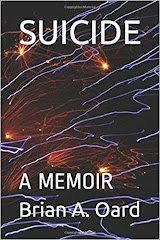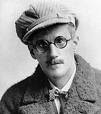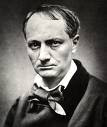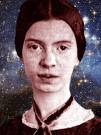This has been a bad year for great writers: Carlos Fuentes in May, Gore Vidal last week, and now word comes of the death of Robert Hughes. Of contemporary art critics, Hughes, John Berger, Arthur Danto and Robert Herbert are the ones I value most highly, and Hughes was the best writer in that superhumanly perceptive crew. Though I never met him, he was my master. As a student of art, I stole so many magisterial bon mots and Olympian opinions from the writings of Robert Hughes that even now it's sometimes hard for me to tell where he ends and I begin. Every time I look at a portrait by Courbet I think of Hughes's great, sensual line, "He painted hair...as though he were running his fingers through it." In him I found affirmation for my own insistence, drawn from experience, that nothing substitutes for a face-to-face encounter with a painting: "You cannot think and feel your way back into the way something was made by looking at a slide: only by studying the real thing." (Note that uncharacteristically unwieldy sentence's encapsulation of an entire ars critica: the duty of the critic is neither to flog and blog unargued assertions, nor to bemerde works of art with the latest, hippest critical theories, nor to find in art convenient confirmations of one's favored ideologies; the critic's task, the critic's gift, is to "think and feel [his or her] way into the way something was made".) In him I also found an object lesson in the tentative nature of all critical opinions (or as I like to put it, the principle that every interpretation should end with an implied "...or maybe not."): when Hughes first saw Philip Guston's late works, he failed to understand them, failed to really see them, and panned them accordingly; later he came to consider these same paintings among the most important of the late 20th century and saw his earlier misunderstanding as the most notable mistake of his critical career.
Robert Hughes leaves a body of work that's nothing short of heroic, and I recommend every word: The Shock of the New and American Visions are definitive; Nothing If Not Critical, a collection of essays and reviews, is as compulsively readable as (and even more enjoyable than) John Berger's Selected Essays; his book on Goya is marvelous, his autobiography to ca.1970, Things I Didn't Know, is a wonderful read; his contentious entry in the 1990s culture wars, The Culture of Complaint, remains valuable and thought-provoking. I've yet to read his works of history (The Fatal Shore, Barcelona, Rome), but the first was widely praised and the last provoked the professional ire of classicists, which is perhaps not a bad thing. Death's triumph robs us of the second volume of his memoirs (unless he finished it before his final illness), but more importantly it stills the most eloquent, intelligent and pugnacious voice in the contemporary artworld. I will miss this burly Australian generalist with his Sydneyfied vowels and his infallible bullshit detector. I miss him already.
Check out his friend Peter Carey's impassioned eulogy in The Guardian.
The entire BBC series The Shock of the New can be viewed online here.
Tuesday, August 7, 2012
Wednesday, August 1, 2012
The 2012 Sight and Sound Poll: First Thoughts
All "best of" lists, even my own, are meaningless except as recommendations of films to be watched, books to be read, etc. and as representations of one person's (or group's) taste. De gustibus non est disputandum and all that. That said, I wish to dispute a few examples of the grouptaste represented by this decade's Sight and Sound Poll:
What, no Bergman?!? My own top ten list begins with a three-way tie for first place among Citizen Kane, Vertigo and Persona, so I'm rather shocked to see not a single title by Ingmar Bergman on either list. Persona, Cries and Whispers, Scenes From A Marriage, Wild Strawberries, The Seventh Seal and Fanny and Alexander are all on a level with most of the films chosen this decade.
No Kieslowski?!? Maybe it's still too soon for K's work to enter the canon of canons, but I predict that future decades will see The Decalogue or Three Colors: Blue, White, Red in the top ten. (Provided that S&S revises the rules to permit series films to be counted as a single film.)
No Kurosawa?!? The great, moving Ikiru would have been my choice for a Kurosawa film in the top ten. It is surely among the greatest films ever made.
No Truffaut?!? No Godard?!? No Malle?!? This decade's poll exhibits a serious bias against the French New Wave. My purely hypothetical list would've included Truffaut's Quatre-cent coups (The 400 Blows), Godard's Vivre Sa Vie, and Malle's Murmur of the Heart.
No Bunuel...This is less surprising. Luis Bunuel has never received the respect he so clearly deserves as the director of Viridiana, The Exterminating Angel, Los Olvidados, Belle de Jour, The Discreet Charm of the Bourgeoisie, and The Phantom of Liberty. Most non-Bunuelites know him solely as the director of Un Chien Andalou and L'Age D'Or, brilliant Surrealist films but only a tiny fraction of his oeuvre. It's time to lift Bunuel out of the Rodney Dangerfield slot and give him a little respect.
I also disagree with the choice of Tokyo Story on both lists, finding its position at the top of the director's poll almost incomprehensible. Far from being one of the greatest films ever made, Tokyo Story isn't even Ozu's best film; it doesn't come close to the brilliant, beautiful Floating Weeds.
The critics need to re-screen Renoir's The Rules of the Game on a double bill with his Grand Illusion. They will discover, as I did a few years ago, that the latter is the greater film.
I didn't like Tarkovsky's Mirror at all the first time I saw it, but on the evidence of its strong showing here, I'll give it another look.
On the positive side, I wholly endorse the selection of Vertov's Man With a Movie Camera while simultaneously wondering "No Eisenstein?!?"
In the interest of full disclosure, here's something like what my purely hypothetical 'top dozen' list would look like:
1. Vertigo (Hitchcock)
1. Citizen Kane (Welles)
1. Persona (Bergman)
2. Shadows of Forgotten Ancestors (Parajanov)
3. 8 1/2 (Fellini)
4. Murmur of the Heart (Malle)
5. The Godfather trilogy (Coppola)
6. The Decalogue (Kieslowski)
7. Short Cuts (Altman)
8. Ikiru (Kurosawa)
9. Belle de Jour (Bunuel)
10. Napoleon (Gance)
And looking over my own list, I ask "No Truffaut?!?" "No Eisenstein?!?" "No Godard?!?" Yes, listmaking is indeed absurd. So let's compound the absurdity:
11. Les Quatre-Cent Coups (Truffaut)
12. Vivre Sa Vie (Godard)
13. The Battleship Potemkin (Eisenstein)
14. Sunset Boulevard (Wilder)
15. Koyaanisqatsi (Reggio)
16. Grand Illusion (Renoir)
17. City Lights (Chaplin)
18. An Angel at My Table (Campion)
19. The Last Laugh (Murnau)
20. Ali: Fear Eats The Soul (Fassbinder)
21. Playtime (Tati)
22. Pickpocket (Bresson)
23. Man With a Movie Camera (Vertov)
24. Peeping Tom (Powell)
25. Eraserhead (Lynch)
25. Goodfellas (Scorsese)
And since I've now lost all fear of absurdity, a prediction about a few recent films that might show up on future Sight and Sound lists:
The Tree of Life (Malick)
There Will Be Blood (Anderson)
Synecdoche, New York (Charlie Kaufman)
The Matrix (Wachowski siblings--We can't call them brothers anymore because Larry is Lana now, and she's a pretty hot chick.)
What, no Bergman?!? My own top ten list begins with a three-way tie for first place among Citizen Kane, Vertigo and Persona, so I'm rather shocked to see not a single title by Ingmar Bergman on either list. Persona, Cries and Whispers, Scenes From A Marriage, Wild Strawberries, The Seventh Seal and Fanny and Alexander are all on a level with most of the films chosen this decade.
No Kieslowski?!? Maybe it's still too soon for K's work to enter the canon of canons, but I predict that future decades will see The Decalogue or Three Colors: Blue, White, Red in the top ten. (Provided that S&S revises the rules to permit series films to be counted as a single film.)
No Kurosawa?!? The great, moving Ikiru would have been my choice for a Kurosawa film in the top ten. It is surely among the greatest films ever made.
No Truffaut?!? No Godard?!? No Malle?!? This decade's poll exhibits a serious bias against the French New Wave. My purely hypothetical list would've included Truffaut's Quatre-cent coups (The 400 Blows), Godard's Vivre Sa Vie, and Malle's Murmur of the Heart.
No Bunuel...This is less surprising. Luis Bunuel has never received the respect he so clearly deserves as the director of Viridiana, The Exterminating Angel, Los Olvidados, Belle de Jour, The Discreet Charm of the Bourgeoisie, and The Phantom of Liberty. Most non-Bunuelites know him solely as the director of Un Chien Andalou and L'Age D'Or, brilliant Surrealist films but only a tiny fraction of his oeuvre. It's time to lift Bunuel out of the Rodney Dangerfield slot and give him a little respect.
I also disagree with the choice of Tokyo Story on both lists, finding its position at the top of the director's poll almost incomprehensible. Far from being one of the greatest films ever made, Tokyo Story isn't even Ozu's best film; it doesn't come close to the brilliant, beautiful Floating Weeds.
The critics need to re-screen Renoir's The Rules of the Game on a double bill with his Grand Illusion. They will discover, as I did a few years ago, that the latter is the greater film.
I didn't like Tarkovsky's Mirror at all the first time I saw it, but on the evidence of its strong showing here, I'll give it another look.
On the positive side, I wholly endorse the selection of Vertov's Man With a Movie Camera while simultaneously wondering "No Eisenstein?!?"
In the interest of full disclosure, here's something like what my purely hypothetical 'top dozen' list would look like:
1. Vertigo (Hitchcock)
1. Citizen Kane (Welles)
1. Persona (Bergman)
2. Shadows of Forgotten Ancestors (Parajanov)
3. 8 1/2 (Fellini)
4. Murmur of the Heart (Malle)
5. The Godfather trilogy (Coppola)
6. The Decalogue (Kieslowski)
7. Short Cuts (Altman)
8. Ikiru (Kurosawa)
9. Belle de Jour (Bunuel)
10. Napoleon (Gance)
And looking over my own list, I ask "No Truffaut?!?" "No Eisenstein?!?" "No Godard?!?" Yes, listmaking is indeed absurd. So let's compound the absurdity:
11. Les Quatre-Cent Coups (Truffaut)
12. Vivre Sa Vie (Godard)
13. The Battleship Potemkin (Eisenstein)
14. Sunset Boulevard (Wilder)
15. Koyaanisqatsi (Reggio)
16. Grand Illusion (Renoir)
17. City Lights (Chaplin)
18. An Angel at My Table (Campion)
19. The Last Laugh (Murnau)
20. Ali: Fear Eats The Soul (Fassbinder)
21. Playtime (Tati)
22. Pickpocket (Bresson)
23. Man With a Movie Camera (Vertov)
24. Peeping Tom (Powell)
25. Eraserhead (Lynch)
25. Goodfellas (Scorsese)
And since I've now lost all fear of absurdity, a prediction about a few recent films that might show up on future Sight and Sound lists:
The Tree of Life (Malick)
There Will Be Blood (Anderson)
Synecdoche, New York (Charlie Kaufman)
The Matrix (Wachowski siblings--We can't call them brothers anymore because Larry is Lana now, and she's a pretty hot chick.)
Sight and Sound Poll 2012: The Top Ten Greatest Films of All Time
Big news for Hitchcock fans: Sight and Sound magazine has just released the results of this decade's poll of critics and directors, and the former have chosen Hitchcock's Vertigo for the number one spot, displacing perpetual winner Citizen Kane. In the director's poll, Ozu's Tokyo Story displaced Kane, which tied with Kubrick's 2001 for number two. Here are both lists in their entirety:
The Critics’ Top 10 Greatest Films of All Time:
Vertigo (Hitchcock, 1958)
Citizen Kane (Welles, 1941)
Tokyo Story (Ozu, 1953)
La Règle du jeu (Renoir, 1939)
Sunrise: a Song for Two Humans (Murnau, 1927)
2001: A Space Odyssey (Kubrick, 1968)
The Searchers (Ford, 1956)
Man with a Movie Camera (Dziga Vertov, 1929)
The Passion of Joan of Arc (Dreyer, 1927)
8 ½ (Fellini, 1963)
The Directors’ Top 10 Greatest Films of All Time:
Tokyo Story (Ozu, 1953)
=2 2001: A Space Odyssey (Kubrick, 1968)
=2 Citizen Kane (Welles, 1941)
8 ½ (Fellini, 1963)
Taxi Driver (Scorsese, 1980)
Apocalypse Now (Coppola, 1979)
=7 The Godfather (Coppola, 1972)
=7 Vertigo (Hitchcock, 1958)
Mirror (Tarkovsky, 1974)
Bicycle Thieves (De Sica, 1948)
The Critics’ Top 10 Greatest Films of All Time:
Vertigo (Hitchcock, 1958)
Citizen Kane (Welles, 1941)
Tokyo Story (Ozu, 1953)
La Règle du jeu (Renoir, 1939)
Sunrise: a Song for Two Humans (Murnau, 1927)
2001: A Space Odyssey (Kubrick, 1968)
The Searchers (Ford, 1956)
Man with a Movie Camera (Dziga Vertov, 1929)
The Passion of Joan of Arc (Dreyer, 1927)
8 ½ (Fellini, 1963)
The Directors’ Top 10 Greatest Films of All Time:
Tokyo Story (Ozu, 1953)
=2 2001: A Space Odyssey (Kubrick, 1968)
=2 Citizen Kane (Welles, 1941)
8 ½ (Fellini, 1963)
Taxi Driver (Scorsese, 1980)
Apocalypse Now (Coppola, 1979)
=7 The Godfather (Coppola, 1972)
=7 Vertigo (Hitchcock, 1958)
Mirror (Tarkovsky, 1974)
Bicycle Thieves (De Sica, 1948)
The Last Literary Lion: Gore Vidal 1925-2012
"Yesterday the Reagan Library burned to the ground. Both books were destroyed. But the real tragedy is that Ronnie hadn't finished coloring them yet." -- Gore Vidal, on The Tonight Show with Johnny Carson, 1980s
American literature just lost its last lion. Gore Vidal died yesterday in Los Angeles at age 86. Obituaries are proliferating online, so I'll keep this post more personal.
When I turned on my computer this morning, the news of Vidal's death hit me like a punch in the gut. It was not unexpected; he was old, his body and mind had been fading, and his best work was two decades behind him. But I still hoped that somehow he would be immortal. He was one of those who deserved to quaff the ambrosial nectar and live forever, to be unto eternity an outrageous thorn in everyone's side. Novelist, essayist, playwright, politician, screenwriter, wit, raconteur, cultural critic, political commentator, sexual rebel, WWII veteran, one-percenter, traitor to his class, gossip, bitch, WASPy scion, grandson of a senator, friend of a president (JFK), enemy of a president's brother (RFK), stepbrother of Jackie Kennedy, buttfucker of Jack Kerouac, Vidal was an almost incomprehensibly comprehensive man. He lived his life with such overplus that his prolificity as a writer seems almost impossible: all those novels, all those essays, those plays, those movies... Surely there were two or three 'Gore Vidals' living in that house on the Amalfi coast, a gang of compulsively typing doppelgangers who could be stashed away in a basement trunk whenever outsiders came calling... But no, Gore did it all, and (to paraphrase another of his old friends) he did it his way.
"To be demoralized by the withdrawal of public success (a process as painful in America as the withdrawal of a drug from an addict) is to grant too easy a victory to the society one has attempted to criticize, affect, change, reform. It is clearly unreasonable to expect to be cherished by those one assaults. It is also childish, in the deepest sense of being a child, ever to expect justice. There is none beneath our moon. One can only hope not to be entirely destroyed by injustice and, to put it cynically, one can very often flourish through an injustice obtaining in one's favor. What matters finally is not the world's judgment of oneself but one's own judgment of the world. Any writer who lacks this final arrogance will not survive long in America." -- Gore Vidal, "Norman Mailer's Self-Advertisements," 1960, collected in United States: Essays 1952-1992.
The only way to mourn a writer is to read him. Of the novels, I recommend the marvelous Julian, the outrageous Myra Breckenridge, the deliriously revisionist Burr, the bestselling Lincoln (it reveals its TV miniseries roots at its weakest moments [it began life as an unproduced TV screenplay, then Vidal novelized it, then it became a TV miniseries several years later], but Mary Todd Lincoln's mad scenes are perhaps the greatest and most affecting scenes in all of Vidal's fiction), the wonderful Hollywood, the deliciously blasphemous Live From Golgotha, and Vidal's stated favorite among his 'serious' novels, Creation. The prose in Vidal's essays is consistently superior to his novelistic prose, so his overall masterpiece is probably the dictionary-sized essay collection United States, virtually every page of which contains at least one example of 'the quotable Vidal.' But of all his works, my personal favorite is the beautifully written and compulsively gossipy memoir Palimpsest.
I distrust the very concept of the 'hero,' but if I had heroes (and I do; we all do), Gore would be one of them.
He will be buried in Rock Creek Park Cemetery, Washington, DC, next to his companion Howard Auster. His grave deserves to be a pilgrimage site, like the tombs on the Appian Way. He was, after all, in many ways, more an antique Roman than an American--and thus the noblest American of them all.
"He was a man, take him for all in all, / I shall not look upon his like again."
American literature just lost its last lion. Gore Vidal died yesterday in Los Angeles at age 86. Obituaries are proliferating online, so I'll keep this post more personal.
When I turned on my computer this morning, the news of Vidal's death hit me like a punch in the gut. It was not unexpected; he was old, his body and mind had been fading, and his best work was two decades behind him. But I still hoped that somehow he would be immortal. He was one of those who deserved to quaff the ambrosial nectar and live forever, to be unto eternity an outrageous thorn in everyone's side. Novelist, essayist, playwright, politician, screenwriter, wit, raconteur, cultural critic, political commentator, sexual rebel, WWII veteran, one-percenter, traitor to his class, gossip, bitch, WASPy scion, grandson of a senator, friend of a president (JFK), enemy of a president's brother (RFK), stepbrother of Jackie Kennedy, buttfucker of Jack Kerouac, Vidal was an almost incomprehensibly comprehensive man. He lived his life with such overplus that his prolificity as a writer seems almost impossible: all those novels, all those essays, those plays, those movies... Surely there were two or three 'Gore Vidals' living in that house on the Amalfi coast, a gang of compulsively typing doppelgangers who could be stashed away in a basement trunk whenever outsiders came calling... But no, Gore did it all, and (to paraphrase another of his old friends) he did it his way.
"To be demoralized by the withdrawal of public success (a process as painful in America as the withdrawal of a drug from an addict) is to grant too easy a victory to the society one has attempted to criticize, affect, change, reform. It is clearly unreasonable to expect to be cherished by those one assaults. It is also childish, in the deepest sense of being a child, ever to expect justice. There is none beneath our moon. One can only hope not to be entirely destroyed by injustice and, to put it cynically, one can very often flourish through an injustice obtaining in one's favor. What matters finally is not the world's judgment of oneself but one's own judgment of the world. Any writer who lacks this final arrogance will not survive long in America." -- Gore Vidal, "Norman Mailer's Self-Advertisements," 1960, collected in United States: Essays 1952-1992.
The only way to mourn a writer is to read him. Of the novels, I recommend the marvelous Julian, the outrageous Myra Breckenridge, the deliriously revisionist Burr, the bestselling Lincoln (it reveals its TV miniseries roots at its weakest moments [it began life as an unproduced TV screenplay, then Vidal novelized it, then it became a TV miniseries several years later], but Mary Todd Lincoln's mad scenes are perhaps the greatest and most affecting scenes in all of Vidal's fiction), the wonderful Hollywood, the deliciously blasphemous Live From Golgotha, and Vidal's stated favorite among his 'serious' novels, Creation. The prose in Vidal's essays is consistently superior to his novelistic prose, so his overall masterpiece is probably the dictionary-sized essay collection United States, virtually every page of which contains at least one example of 'the quotable Vidal.' But of all his works, my personal favorite is the beautifully written and compulsively gossipy memoir Palimpsest.
I distrust the very concept of the 'hero,' but if I had heroes (and I do; we all do), Gore would be one of them.
He will be buried in Rock Creek Park Cemetery, Washington, DC, next to his companion Howard Auster. His grave deserves to be a pilgrimage site, like the tombs on the Appian Way. He was, after all, in many ways, more an antique Roman than an American--and thus the noblest American of them all.
"He was a man, take him for all in all, / I shall not look upon his like again."
Subscribe to:
Posts (Atom)









